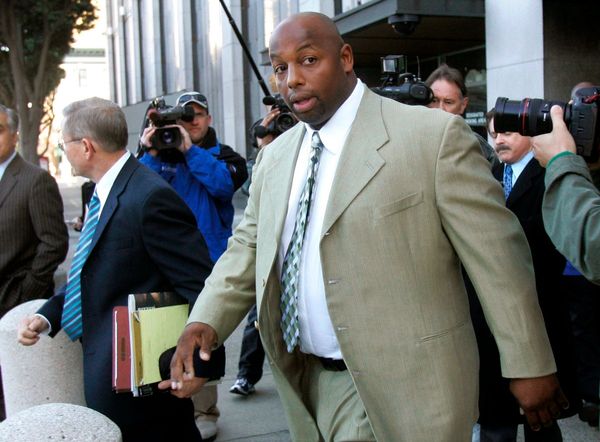
There is something about Fijian rugby that is engrossing, from watching their very best players defy physics on the pitch to hearing the incredible backstories behind the men and women that have given the game so much.
But there are other less pleasing sides to Fijian rugby too, one of greed and mismanagement, one of poaching and depletion. This is seen most prominently when it comes to the relationship between the union and the government, and the role that other nations such as Australia, New Zealand and England play in pinching any half-decent player that they can get their hands on who boasts a grandmother who once spent two weeks in London. Where there’s a will, there’s always a way.
This is visible none clearer than when Flying Fijians, the 15-a-side national team, is looked at – or rather the names that are noticeably absent from their squad list. Nathan Hughes, the England and Wasps No 8, was born and raised in Lautoka before being scouted by Kelston Boys’ High School in Auckland in 2009, later moving to England in 2013 to pursue an international career with the Red Rose and the riches that came with it.
Hughes has openly and understandably defended his decision in the past. “I play rugby to support my family and put shelter over their heads,” he said ahead of his debut two years ago. “I’d love for Fiji to have more resources, but it is the way it is. They just have to deal with it and live on whatever they have got.”

The difference in salaries on offer is eye-opening. The top players in Fiji can earn around £5,000-a-year, while his deal at Wasps in understood to be in excess of £200,000-a-year. The blame cannot lie at his feet, but rather the governing bodies above him that have for too long ignored the plight of the tier two Pacific Nations. But there is something about the Sevens side that feels natural – untouched and genuine. Watching the Fijian Sevens team is about as close a team can get to rugby perfection. The ball is treated like a hot potato, rarely hitting the deck, and creativity is the name of the game as the likes of Jerry Tuwai and Vatemo Ravouvou try anything and everything to bring the sport to life.
This was on full display at the London Sevens last month as Fiji danced their way to victory that put them on the brink of regaining the World Rugby Sevens Series title. A week later in Paris they would come unstuck, allowing South Africa to retain it by the slimmest of margins, but there was no doubt which team had captured the imagination of supporters around the world and that’s why they are fancied to be the team to beat at this weekend’s Rugby World Cup Sevens in San Francisco.
It’s this attacking instinct that took Ben Ryan, the former England Sevens head coach, to Fiji, on a magical journey that involved sights he had never witnessed before in his life, desperate lows on the Pacific Island and incredible highs that culminated in Olympic Sevens gold in 2016. Ryan is no longer with Fiji, but the imprint it has left on him and vice-versa is clear to see: the Wimbledon-born 46-year-old was gifted three acres of land following the Rio 2016 triumph and allocated the chief name Ratu Peni Raiyani Latianara.
Yet when he arrived in Fiji in 2013, the union was in a state, the Sevens team going through and extraordinary lull and their best players failing to reach anything close to their potential.
“When I came in the things that weren’t doing well were the union had no money, and they didn’t have or were given criticism because in Fijian culture it’s rude to criticise publically,” Ryan tells The Independent. “So if I wasn’t going to pick you I wasn’t telling you, so you never knew how you could get any better, you’d read about it in the newspaper that you’ve been left out. The players didn’t connect training to playing because they played all the time so they never got the intensity of training to get the fitness levels so that you could do what you wanted all the time rather than in peaks and troughs. Then they’d tell me to bring a sports psychologist in to deal with them thinking clearly under pressure because they have these spikes and drops in performance because they don’t focus, and ‘you need to do this, you need to use proprioception exercises’.
“Then I realised that actually if you put 12 teaspoons of sugar in your tea every morning you’re going to get a sugar drop every day and crash – just stop them having sugar! That’s more likely to solve it and doesn’t cost as much. It was simple things like that to just get them to align and let them do their thing.”

Ryan does not claim himself to be rugby’s guru with all the answers, but he is the type of coach that you can see players combining knowledge and enjoyment under. The beauty of Fijian rugby is that it is all played with a smile, which is incredible when the pressure that they are under to succeed back home are revealed.
“The bottom line is it’s their national sport so their best athletes play, and do so from a young age, so they’re highly competent in playing the game,” adds Ryan. “They’re front page and back page news every day, six o’clock news every night, they want to know what Jerry Tuwai’s having for breakfast because that’s important for them, and the build-up for them is important. They have to have 12 pages dedicated to rugby sevens in that week leading up to a tournament so it’s pressure, and I used to think as England coach ‘we’ll take them to Hong Kong or we’ll play Fiji here and they won’t deal with the pressure’. Well actually they deal with it better than anyone else because they’re used to that, whereas we’re flying under the radar in England and suddenly you get to the big tournament and media start talking to [England captain] Tom Mitchell and it’s the first time that anyone’s done it because it’s not a top tier sport in this country.
“There’s also the fact that the negatives in Fiji become positives. They’ll play on undulating surfaces bare foot, they play with a rubbish ball or a coke bottle filled with sand, so this stuff makes them really good at offloading and handling, and then because it’s unorganised it’s not seven-a-side, it’s whoever’s in the village playing, whatever age, the pitch isn’t marked out, there’s bodies everywhere and it’s just one-touch. If you get tackled or touched it’s a turnover so you have to keep it alive, it’s just crazy, but they’re completely used to that.
“That’s why I call it a beautiful chaos – it’s completely chaotic but also beautiful, and there is something around it. There are a number of things like that that when you sit down and talk about them make absolute sense why Fiji are so good at it.”
Ryan has actually just bumped into his old side at the London Sevens when we speak, and with a final against South Africa looming just 20 minutes away, the team are relaxing in one of Twickenham’s hidden rooms playing Fifa. Relaxed doesn’t cover it.
“Osea [Kolinisau], the captain at the Olympics, said to me ‘if you’re ever standing opposite a Fijian smiling in the tunnel, watch out because you’re in real trouble’,” added Ryan, “and if the opposite happens, if I see them stiff-faced and angry, they’re going to play terribly and not be relaxed. It’s great for a coach, you can’t get stressed out when your players are like that, it’s impossible.”
The World Cup this weekend, with no other international rugby on offer, should give Sevens the perfect platform to show the best of Fijian rugby. Look through the schedule, find out when Fiji are playing, and give yourself 20 minutes to sit down and enjoy what they do best. You won’t be disappointed.







